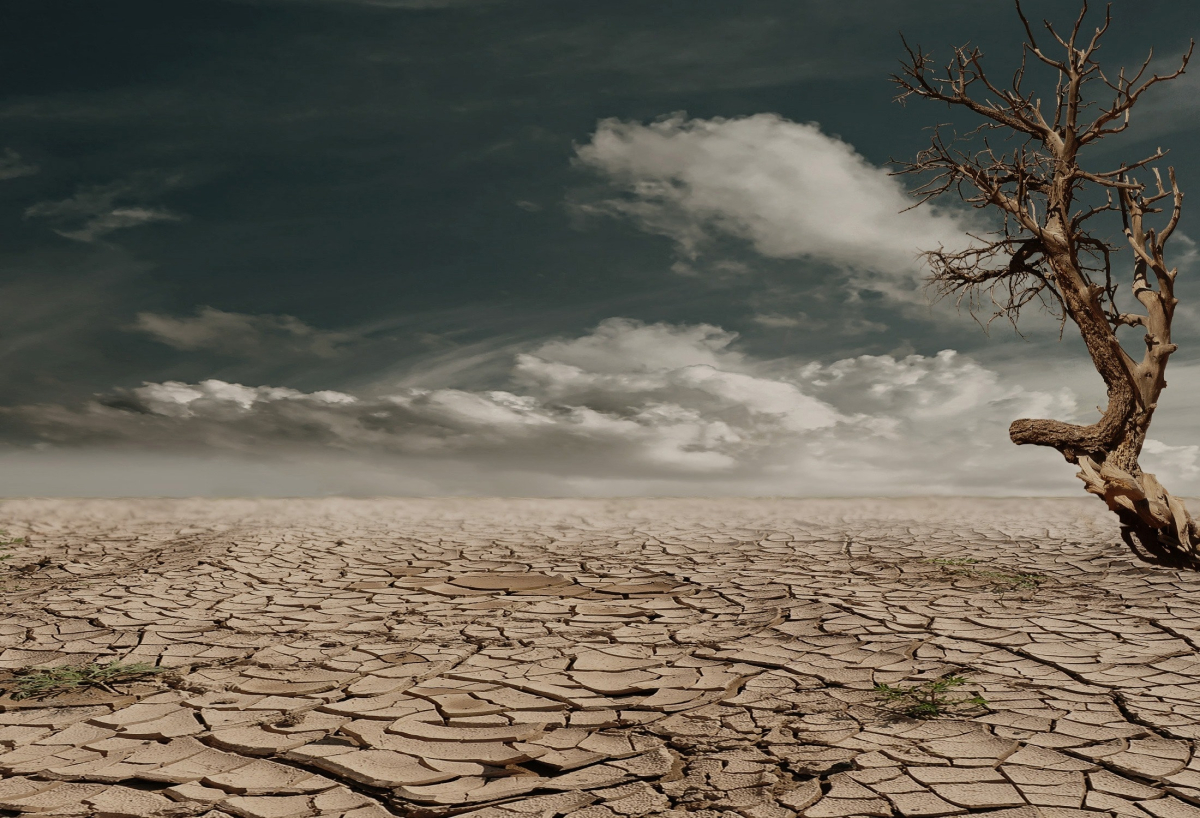Support strong Canadian climate journalism for 2025
As Canadians gathered for Thanksgiving this year, the extreme heat of the summer and early fall was not far from many of our minds.
This unprecedented heat has melted away the last traces of climate change denial, as the true costs reveal themselves.
Though climate policy remains a political hot potato, the Canadian debate has finally and definitively shifted from whether there's a serious need for a credible policy to how best to address it.
As opposed to previous years, where extreme weather events — though horrible — were sporadic and regional, the summer of 2023 brought consistent and widespread horrors from around the world to our TV screens for months on end.
Extreme floods wreaked havoc, as did wildfires, and some places were flooding and on fire at the same time. Because smoke doesn’t respect borders, people hundreds of kilometres away were impacted by fires in other countries. And from east to west and north to south in our big, complicated country, many communities were negatively affected by extreme heat, floods and fires in unprecedented ways.
Significantly, many media reports of these disasters explicitly linked them to climate change — another change from previous years when climate change was often not mentioned as a factor. In 2023, the public was left with no doubt as to causality.
As one example, the scientific experts at World Weather Attribution calculated that climate change more than doubled the likelihood of extreme fire weather conditions in Eastern Canada: “Climate change made the cumulative severity of Québec’s 2023 fire season to the end of July around 50 per cent more intense, and seasons of this severity at least seven times more likely to occur.”
Though economists have long warned of the high cost being exacted by climate change-driven extreme weather, this summer, those calculations became far more real and close to home. For instance, the B.C. government estimated that so far this year, firefighting has cost the province $770 million, blowing away any previous year’s total.
Layering on top the health costs exacted by wildfire smoke, that figure would be much higher, with such costs estimated at more than $1 billion for one week in June in Ontario alone. The City of Halifax estimated a cleanup bill of $20 million after a year that included a hurricane, fires and floods.
As perhaps the most extreme example of huge, new costs, this summer marked the acceleration of insurance companies around the world warning that climate change will render many properties increasingly uninsurable.
State Farm, the largest homeowner insurance company in California, announced it would stop “accepting new applications, including all business and personal lines property and casualty insurance.”
The group representing Canadian insurers warned that “rates could skyrocket, or a lot of Canadians could be denied coverage if they live in areas where these extreme weather events typically happen.”
In Australia, home insurance rates jumped 28 per cent in the past year, according to the Actuaries Institute, which warned, “Based on science, we expect these home insurance affordability pressures are likely to continue to worsen due to climate change.”
Homeowners have started to sit up and take notice. In the U.K., half of homeowners reported being concerned about climate change driving up their insurance rates.
Will the events of this past summer convince everyone that climate is a top priority?
Of course not.
But more people than ever saw the effects of climate change in their communities. This has already fundamentally changed the public discussion on the costs and benefits of climate policy moving forward.
According to Maslow’s Hierarchy of Needs, a theory on what influences human behaviour, factors such as physical health and safety are far more motivating for us than more intellectual concerns.
This was the summer that climate, for many people, moved up Maslow’s priority list.
Seven in 10 Canadians connect the country’s recent wildfires with climate change. Even closer to home, four in five (83 per cent) say smoke impacted their summer, and half of those (44 per cent) described it as bad or hugely disruptive.
Talking about the weather is the most Canadian of pastimes. This summer and fall, that chatter took on a new tone of anxiety, one that is not going away.
There are two more summers until the mandatory date of the next federal election. The trajectory of this debate is clear: Canadians are concerned about climate change impacts and expect the government to act to protect us from them. This concern will only intensify.
Decision-makers, take note.
Rick Smith is the president of the Canadian Climate Institute and the co-author of two bestselling books on the human health effects of pollution. He’s spent 25 years leading non-profit organizations that are dedicated to improving public policy through the creation and communication of the best research and evidence. His focus remains the reconciliation of economic, social, and environmental priorities. He holds a PhD in biology from the University of Guelph and lives in the east end of Toronto.






Comments
It's highly illuminating that the cold, hard data of the insurance industry cuts through the bullshit excreted by climate skeptics and paid deniers, the climate insincerity of politicians and the cloudy thinking of the public. All with the simple economics of cause and effect.
Beautiful.